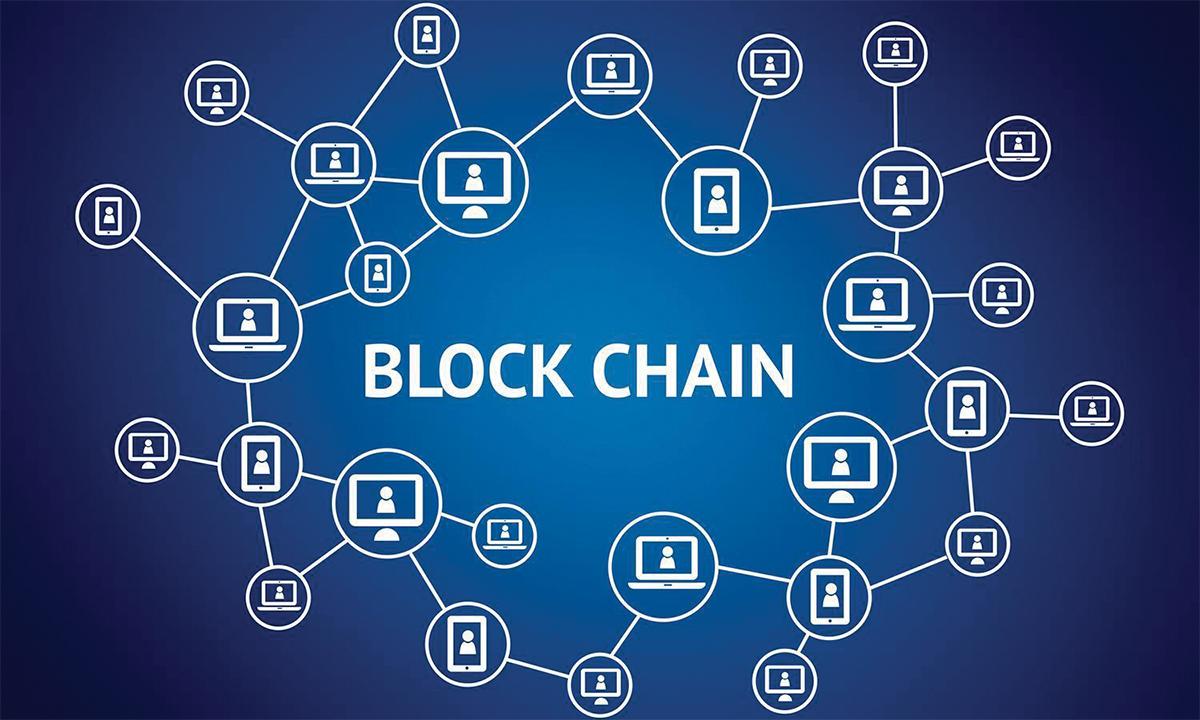In an era defined by rapid technological advancements and burgeoning digital landscapes, one innovation stands poised to revolutionize the way we interact with information, transactions, and trust itself: blockchain. Often hailed as the backbone of cryptocurrencies, this decentralized ledger technology extends far beyond financial applications, weaving its potential into the very fabric of industries ranging from healthcare to supply chain management. As we stand on the threshold of a new digital frontier, understanding the transformative power of blockchain becomes essential. This article embarks on a journey to unlock the future, exploring how blockchain is not only reshaping our current systems but also laying the groundwork for a more transparent, secure, and interconnected world. Join us as we delve into the myriad possibilities that await when we harness the full potential of this groundbreaking technology.
Exploring the Foundations of Blockchain Technology and Its Implications
At its core, blockchain technology is a decentralized ledger that records transactions across multiple computers, ensuring transparency and security. The brilliance of this system lies in its ability to prevent alterations or fraud, fostering trust among users. By employing cryptographic techniques, each block of transactions is linked to the previous one, creating a timeline that is both accessible and immutable. This innovative approach has far-reaching implications across various sectors, including finance, supply chain management, and healthcare, enabling businesses to streamline processes and reduce costs substantially.
The potential applications of blockchain expand beyond mere currency transactions. For example, smart contracts—self-executing contracts with the terms directly written into code—allow for automated and trustworthy agreements with minimal oversight. Furthermore, other implications of blockchain technology can include:
- Improved Traceability: Crucial for industries like food and pharmaceuticals, where tracking the origin of products is vital.
- Reduced Costs: By eliminating intermediaries, businesses can save on transaction fees.
- Enhanced Security: The decentralized nature of blockchain protects against hacking and data breaches.
To illustrate the impact of blockchain technology, consider the following table highlighting its benefits across various industries:
| Industry | Benefits |
|---|---|
| Finance | Faster transactions, lower fees |
| Supply Chain | Transparent tracking, reduced fraud |
| Healthcare | Secure patient records, improved patient care |
As the exploration of blockchain technology deepens, more innovative solutions are expected to emerge, transforming traditional systems and unlocking new opportunities for efficiency and transparency across various fields.

Revolutionizing Industries: How Blockchain Enhances Transparency and Security
The integration of blockchain technology is forging new pathways in various sectors by enhancing the fundamental aspects of transparency and security. With a decentralized ledger system, every transaction is recorded and stored across multiple nodes in the network, eliminating the risk of data tampering. This democratization of information empowers stakeholders to verify transactions independently, fostering a climate of trust. Industries such as supply chain management, banking, and healthcare are particularly benefiting from this technology, as their ability to provide real-time access to data strengthens accountability and greatly reduces fraud.
Additionally, the use of smart contracts further bolsters security measures while streamlining processes. These self-executing contracts with the terms of the agreement directly written into code ensure that conditions are met before transactions are completed, drastically minimizing the potential for disputes. This not only leads to quicker deal closures but also serves to lower operational costs. As organizations begin to recognize the profound implications of adopting blockchain, we can expect a shift towards greater compliance with regulatory standards, thereby laying the groundwork for a new era in data integrity and security.

Empowering Individuals: The Role of Blockchain in Decentralization and Ownership
In the rapidly evolving digital landscape, *blockchain technology* emerges as a beacon of empowerment, redefining individual ownership and fostering unprecedented autonomy. This innovative framework allows users to store and manage their own data, transferring control from centralized authorities to individuals. With the ability to engage directly with peers without intermediaries, it cultivates a profound sense of security and trust. The implications are vast:
- Transparent Transactions: Every interaction is recorded on a public ledger, ensuring full accountability.
- Increased Accessibility: Individuals can participate in global markets without traditional barriers.
- Enhanced Privacy: Users can choose what personal information to share, reclaiming their digital footprint.
Decentralization through blockchain extends its benefits across various sectors, empowering creators, entrepreneurs, and consumers alike. Creative professionals can protect their intellectual property using *smart contracts*, ensuring that they are fairly compensated for their work. Additionally, asset ownership can be digitized and fractionalized, making it easier for individuals to invest in real estate or art without significant capital. A brief overview of these innovative applications is presented below:
| Application | Benefit |
|---|---|
| Art & Music | Direct royalties through NFTs |
| Real Estate | Fractional ownership with greater access |
| Supply Chain | Improved traceability and transparency |

Navigating the Challenges Ahead: Recommendations for a Sustainable Blockchain Ecosystem
As we stand on the brink of a blockchain revolution, it is essential to address the multifaceted challenges facing this nascent technology. To foster a sustainable ecosystem, stakeholders must prioritize collaboration and innovation, ensuring that projects cater to diverse needs across industries. Key recommendations include:
- Enhanced Interoperability: Develop protocols that facilitate communication between different blockchains, improving user experience and broadening adoption.
- Environmental Responsibility: Encourage the use of eco-friendly consensus mechanisms that reduce energy consumption, such as Proof of Stake.
- Regulatory Clarity: Engage with governments to establish clear regulatory frameworks that protect users while fostering innovation.
- Education and Awareness: Invest in educational initiatives to demystify blockchain technology and promote understanding among the general public.
To further illustrate the pathway towards a better blockchain future, it’s beneficial to examine the critical areas for investment and development:
| Focus Area | Importance | Investment Potential |
|---|---|---|
| Security Solutions | Protects users and networks | High |
| Decentralized Finance (DeFi) | Disrupts traditional finance | Very High |
| Supply Chain Transparency | Enhances traceability | Moderate |
| Digital Identity Management | Empowers individuals | High |
By focusing on these pivotal areas, we can collectively unlock the transformative potential of blockchain while paving the way for a dynamic and sustainable future. Emphasizing these recommendations will not only mitigate risks but also harness the full capabilities of blockchain to benefit society at large.
The Way Forward
As we stand on the brink of a new digital frontier, the transformative power of blockchain beckons us to reconsider the paradigms that have long governed our interactions—be it in finance, supply chains, or governance. This decentralized technology, once merely a backbone for cryptocurrencies, has emerged as a catalyst for innovation, driving us toward a future where transparency, efficiency, and trust take center stage.
While the promise of blockchain is vast, it is accompanied by challenges that demand our attention and ingenuity. As we collectively navigate this uncharted territory, it is crucial to remain informed, balanced, and open-minded. This transformation is not just about technology; it’s about reshaping our social contracts, redefining value, and fostering new relationships in an increasingly interconnected world.
The journey of unlocking the future through blockchain has only just begun. As we harness its potential and confront its challenges, we invite you to join the conversation, explore its possibilities, and contribute to a future where innovation meets responsibility. Together, let us unlock doors to new horizons and build a society that is not only technologically advanced but also equitable and inclusive. The future is here, and it starts with us.



